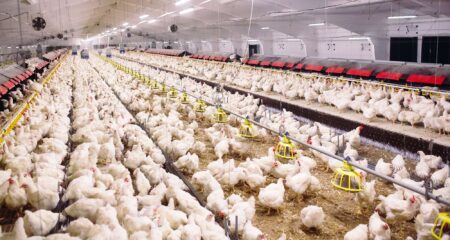The California Legislature has approved a bill to authorize the immediate sale of E15, a gasoline blend with 15% ethanol, but the measure still needs the signature of Gov. Gavin Newsom, whose administration signaled strong opposition to advancing E15 ahead of a California Air Resources Board regulatory review.
In testimony at a Senate Appropriations Committee hearing last month on Assembly Bill 30, California Department of Finance officials labeled the bill as duplicative and unnecessary. A budget official pointed to the $2.3 million and 10 positions the Legislature approved this year for CARB to implement the new E15 standards, resources that will not be available until the agency completes its review.
The administration’s opposition to AB 30 centers on new costs to the California Department of Food and Agriculture for enforcing petroleum product quality standards. CDFA would need new equipment to sample and test E15, along with other expenses for maintenance and supplies. To cover those costs, the department would have to raise its motor vehicle fee beyond the current five cents per gallon. Increasing fuel fees would run counter to the administration’s priority to lower gas prices.
Finance staff underscored that CARB’s review is the proper venue to determine how E15 fits within those standards.
Newsom has until Oct. 12 to decide.
Legislative Push for Lower Prices
Despite the administration’s stance, lawmakers moved the bill with rare bipartisan unity. The Assembly passed AB 30 in June without opposition, and the Senate followed with a 39-0 vote this week. With its urgency statute, the bill would take effect immediately upon the governor’s signature.
Backers have highlighted the potential for cost savings as Californians continue to pay some of the nation’s highest gas prices. A University of California, Berkeley and U.S. Naval Academy study estimated drivers could save about 20 cents per gallon, or $2.7 billion statewide, if E15 were widely available.
“California consumers cannot wait any longer,” said California Sen. Laura Richardson, D-South Bay, during the floor debate.
The bill’s author, Assemblymember David Alvarez, D-San Diego, argued it is past time for the state to join the other 49 states that already allow the blend.
Industry groups representing ethanol producers and corn growers have echoed those arguments, citing both economic and environmental benefits. Studies by CARB and UC Riverside have suggested E15 could cut tailpipe pollutants that contribute to smog and health risks.
Fuel Industry Urges Signature
The Renewable Fuels Association pressed Newsom to sign quickly.
“Many other states have already seen the benefits of E15 — healthier air, better engine performance and cost savings at the pump,” said RFA President and CEO Geoff Cooper. “Now California drivers are on the cusp of experiencing those same advantages.”
Growth Energy CEO Emily Skor pointed out that E15 is already approved for use in 96% of all light-duty vehicles on the road.
“Growth Energy has already begun to provide technical expertise in support of CARB’s still-forthcoming E15 approval rulemaking, and we encourage the state to identify other ways to maximize the impact AB 30 can have in the short-term,” said Skor. “With AB 30, the Legislature heard and responded to California drivers that demanded more affordable fuel options.”
In addition to national trade groups, California-based stakeholders have lined up behind the bill. The California Farm Bureau has endorsed AB 30, citing potential relief for rural communities facing high fuel costs. The California Fuels and Convenience Alliance, which represents the state’s retailers, has also backed the measure.
What’s Next
Newsom now faces a decision that could anger Democrats and biofuel producers alike if he issues a veto. His administration has leaned on fiscal concerns, warning that authorizing E15 before CARB’s process concludes would raise state spending — as it continues to grapple with an ongoing budget deficit — while undermining regulatory integrity.
In a special session last year, lawmakers shot down a bill to accelerate E15. Matthew Botill, a division chief at CARB, explained to the lawmakers that the agency must evaluate the potential air, water and soil impacts. That has led to several studies and literature assessments, followed by a review from an environmental policy committee, extending the process. Once that is completed, CARB can consider reopening the rulemaking, triggering several more months of hearings and administrative review.
“It’s a resource-intensive process,” said Botill. “It does take time and staff on the CARB side.”
Two weeks after the bill stalled, Newsom directed CARB to accelerate its review regardless of the legislation. A month later, Alvarez echoed that message with AB 30.
Newsom’s office declined Friday to comment on his plans for the bill.
This article was originally published by Agri-Pulse. Agri-Pulse is a trusted source in Washington, D.C., with the largest editorial team focused on food and farm policy coverage.


:max_bytes(150000):strip_icc()/IMG_1591-2048x1365-362687ca596f4814967abffff2b4be2c.jpg)
:max_bytes(150000):strip_icc()/SuccessfulFarmingShareImage-8fed6410b43147a19ed5ea1e3243227f.png)



:max_bytes(150000):strip_icc()/Ethanol20from20flickr-2000-0a0d81f6221043f98e22ca5a38613e31.jpg)

:max_bytes(150000):strip_icc()/IMG_7575-ac6db3006a2145109bcc2df421c7a962.jpeg)

:max_bytes(150000):strip_icc()/Markets-3-Corn-up-3-19bdbeee0041452db8bce0a0f1c8b883.jpeg)